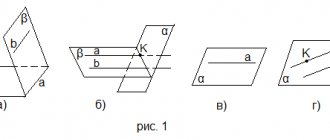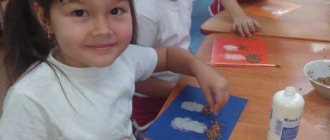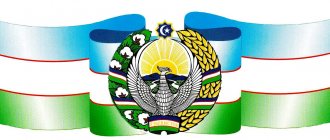Pedagogical project “Pochemuchki-researchers”
Dunyushkina I.I. Pedagogical project “Pochemuchki-researchers” // Sovushka. 2020. N3(13). URL: https://kssovushka.ru/zhurnal/13/ (date of access: 10.10.2020).
Order No. 112779
“Tell me and I’ll forget,
show me - and I will remember,
let me try and I’ll understand.”
(Chinese proverb)
“It’s better to see once than to hear a hundred times,” says popular wisdom.
“It’s better to test it once, try it, do it yourself,” practical teachers say.
Relevance
A child is a natural explorer of the world around him. The world opens up to the child through the experience of his personal feelings, actions, and experiences. Thanks to this, he understands the world he has come to. He studies everything as best he can and with whatever he can - with his eyes, hands, tongue, nose. He rejoices at even the smallest discovery. In older preschool age, they develop needs to understand this world, which are reflected in the form of search and research activities aimed at “discovering something new,” which develop productive forms of thinking. Research and search activity is the natural state of a child; he is determined to master the world around him, he wants to get to know it. This internal desire for research gives rise to exploratory behavior and creates the conditions for the child’s mental development to initially unfold as a process of self-development.
The teacher’s task is not to suppress the research and search activity of children, but, on the contrary, to actively help and promote its development. Cognitive-research activity is a form of child activity aimed at learning the properties and connections of objects; contributes to the formation of a holistic picture of the world.
Research by N. N. Poddyakov confirms that experimentation claims to be a leading activity in the period of preschool childhood, the basis of which is cognitive orientation.
The main advantage of the experimentation method is that it gives children real ideas about the various aspects of the object being studied, about its relationships with other objects and with the environment. During the experiment, the child’s memory is enriched, his thought processes are activated, as the need for analysis and comparison, classification and generalization constantly arises. The need to give an account of what was seen, to formulate discovered patterns and conclusions stimulates the development of speech.
Goal: Development of children's cognitive interest in the process of experimental activities.
Tasks:
- expand children’s understanding of the physical properties of the world around them;
- introduce children to the properties of various objects and natural materials; — development of thought processes, independence;
- education of a humane and valuable attitude towards nature;
- creating the necessary conditions for the development of experimental activities of children;
- to develop experience in following safety rules when conducting experiments;
- involving parents in joint activities;
Project Matrix
Project name: “Pochemuchki - Researchers”
Thematic field: Experimental activities of children of senior preschool age.
Type of project: educational - research, creative, group.
Project participants: children, teachers, parents.
Project duration: long-term 2015-2017
Problem:
In reality, this method (experimentation) is used unjustifiably rarely in preschool educational institutions. Despite many positive aspects, it has not yet become widespread.
Teaching methods: verbal, practical, visual.
Main forms of project implementation:
1. Forms of educational work with children:
- experiments, experiments
- experimenting while walking
- individual work with children
- independent experimental activity
- didactic games
- outdoor games
- work in nature and in a corner of nature
- reading fiction
- conversations
- viewing presentations, cartoons.
2. Forms of work with parents:
- Master Class
- Consultation
- Booklets, memos
- Conversations
- Manual labor
- Developmental environment.
3. Forms of work with teachers:
- Consultations
- Booklets
- Master Class.
Expected result:
- Shows a stable cognitive interest in experimentation;
- Puts forward hypotheses, assumptions, and methods for solving them, making extensive use of argumentation and evidence;
- Independently plans upcoming activities; consciously selects objects and materials for independent activities in accordance with their qualities, properties and purpose;
- Shows initiative and creativity in solving assigned tasks;
- In dialogue with adults, he explains the course of activities and draws conclusions.
Prospects:
- Introduce into the work of preschool educational institutions this project on experimental activities with children of senior preschool age;
- Choose the optimal methods and techniques to enhance speech activity (according to the recommendations of the teacher - speech therapist);
- Improve professionalism through the use of innovative teaching technologies;
- Replenish the subject-development environment;
- Systematize didactic material for conducting diagnostic situations.
Novelty:
- Integrated use of elements of previously known and modern methods of children's experimentation, taking into account the integration of educational areas of the program.
Stages of the project
| Stages | Contents of the activity | Deadlines |
| Organizational and diagnostic | Analysis of scientific and methodological literature. Pedagogical diagnostics at the beginning of the project. Develop long-term planning with children and parents. Organization of subject-development environment | September 2020 |
| Practical | Implementation of a long-term plan for working with children and parents, taking into account the integration of educational areas. | October-February 2015-2017 |
| Final | Pedagogical diagnostics at the end of the project. Presentation of the project at the pedagogical council. | February 2020 |
Long-term plan of work on the project for experimental activities for 2020 - 2020.
| Month | Kind of activity | Subject | Target |
| October | Conversation - story | Excursion to the children's laboratory | Increasing interest in research activities. |
| Educational video. | Magic glass | Introduce children to observation devices. | |
| OOD | Properties of substances | Formation of ideas about the properties of substances. | |
| Experience | Structure of substances | Expanding ideas about the structure of familiar substances | |
| Experience | Dissolve, do not dissolve | Introduce children to such a property as solubility. | |
| November | OOD | "Air is invisible" | Expand knowledge about air. |
| Experience | "Where it's warmer" | Find out that warm air is lighter than cold air. | |
| Outdoor game | "Catch the Air" | Consolidate knowledge about air during the game. | |
| Conversation | "Respiratory system" | To expand preschoolers’ knowledge about the human respiratory system. | |
| December | Presentation | "Waters of the Globe" | Introduce children that most of the globe is occupied by water. |
| Experience | "Where did the water go" | Identify the process of water evaporation. | |
| Experience | "Helper Water" | Use knowledge about rising water levels to solve a cognitive problem. | |
| Experimenting while walking | "Properties of Water" | Expand your understanding of the properties of water. | |
| January | Educational cartoon | "Fixies" (magnet) | Introduce the origin of magnets. |
| Experience | "Magnetic Forces" | Reveal the properties of a magnet. | |
| Conversation - experiment | "The Force of Gravity" | Give children ideas about the force of gravity. | |
| Experience | "Two Magnets" | Identify the peculiarities of the interaction of two magnets. | |
| D/game | "Catch a Fish" | Consolidate knowledge about magnets during the game. | |
| February | Conversation | "In the world of electricity" | Expand children's understanding of electricity. |
| Experiment | "Magic Ball" | Determine the cause of static electricity. | |
| The game is an experiment | "Miracle hairstyle" | Introduce the manifestations of static electricity. | |
| Presentation | "What is lightning" | Reveal that a thunderstorm is a manifestation of electricity in nature. | |
| March | OOD | "In the world of flowers" | |
| Work in a corner of nature | "Transplanting flowers" | Mastering the skills of replanting indoor plants. | |
| Experience | "Tops of Roots" | Find out what comes out of the seed first. | |
| Experience | "Water Filtration" | Introduce water purification processes in different ways. | |
| Reading x/l | "Flower Light" | To consolidate children's knowledge about colors while reading x/l. | |
| April | presentation | "Planets of the Solar System" | Enrich and systematize children's understanding of space. |
| OOD | "Space" | ||
| Conversation | "Far close" | Introduce children to how distance from the sun affects air temperature. | |
| Reading x/l | Iris Review "Star Alida" | To consolidate children's knowledge about space while reading x/l. | |
| May | Observation | "Water evaporates with the help of wind" | Prove that the wind evaporates moisture faster. |
| Conversation | "Plants and fertilizers" | Give children the idea that plant growth depends on soil. | |
| Work in the garden | "Life-giving properties of water" | Identify the environmental factors necessary for the growth and development of plants. | |
| D/game | "What grows where" | To clarify and consolidate children’s knowledge about the object’s belonging to the ecological system “Meadow” | |
| September | Excursion | "Park Forest" | Expand children's understanding of the diversity of vegetation and its inhabitants during an excursion to the park forest. |
| Experience | "Where the roots go" | Establish a connection between modifications of plant parts and environmental factors. | |
| Experience | "Thrifty stems" | Prove that in the desert the stems of some plants can accumulate moisture. | |
| presentation | "Forest protector and healer" | Identify the protective role of forests in the forest-steppe climatic zone. | |
| P\game | "Winged Seeds" | Reinforce knowledge about seeds during the game. | |
| October | Experience | "Strong Matchbox" | Determine the elasticity of air. |
| Experience | "Dry out of the water" | Demonstrate the existence of atmospheric pressure. | |
| Presentation | "World of Metals" | Introduce children to the types of metals. | |
| Conversation | "The role of metals in human life" | Introduce children to the role of metals in human life. | |
| November | Presentation | "Pearl of the Urals" | Introduce children to natural resources on the territory of the Republic of Belarus. |
| Experience | "Qualities of natural resources" | Introduce the qualities of natural resources. | |
| Experience | "Properties of sand and clay" | To form children's knowledge about the properties of sand and clay. | |
| OOD | "Drawing on Stone" | Introduce children to non-traditional drawing techniques. Develop imagination, creative imagination, imaginative thinking. | |
| D/game | "Mountain and Pebbles" | Reinforce the features of minerals in game images. | |
| Reading x/l | “A fairy tale about a lying stone under which water does not flow” | To consolidate children's knowledge about stones in the process of reading x/l. | |
| December | Walking experiments | "Interaction of water and snow" | To consolidate children's knowledge about the two states of aggregation of water. |
| Experience | "Air Underwater" | Revealing that air is lighter than water is powerful. | |
| Experience | "Change in fluid volume" | Identify changes in the volume of liquid during freezing. | |
| D/game | "Water" | Expand knowledge about the ecosystem of water bodies. | |
| P/game | "We are water droplets" | ||
| January | Experience | "What's faster" | Identify features of sound transmission over a distance. |
| Walking experience | "Sounds in the Water" | Identify features of sound transmission over a distance. | |
| Manual labor | "Match Phone" | Make a simple device for transmitting sound. |
Long-term plan for working with parents
| Form of work | Subject |
| Conversation at home with children: | “Who are scientists”, “What is an experiment?” |
| Consultation: | "Organization of children's experimentation at home" |
| Manual labor: Conversation: | — Make a water filter with your children from a variety of materials. — “How to organize games with water.” |
| Memo: | “What shouldn’t be done and what should be done to maintain children’s interest in cognitive experimentation?” |
| Consultation: | “By playing, we learn.” |
| Involve parents in replenishing the collection: | "Different fabrics" "Paper Country" |
| Master Class: | "Interesting experiences with children" |
Diagnostic results at the beginning of the project (September 2015)
Thus, the diagnostic results at the beginning of the project showed the following:
With a high level of development – 26% (5) – the child’s cognitive attitude is stable. He shows initiative and creativity in solving problematic problems. Sees the problem independently. Puts forward hypotheses, assumptions, and methods for solving them, making extensive use of argumentation and evidence. Independently plans upcoming activities. Consciously selects objects and materials for independent activities in accordance with their qualities, properties, and purpose. Acts systematically. In dialogue with an adult, he explains the course of the activity. Formulates in speech: whether the result has been achieved or not, notices the incomplete correspondence of the obtained result to the hypothesis. Draws conclusions.
With an average of 53% (10) - in most cases the child shows active cognitive interest. Sees the problem sometimes on his own, sometimes with a little help from an adult. The child accepts the task and initiates search actions, but acts inconsistently and receives partial results. Gives reasons for his opinions and uses evidence with the help of an adult.
With a level below average – 21% (4). Children do not show a sustained interest in experimentation, find it difficult to make assumptions about possible ways to solve a problem, refuse exploratory search, limit themselves to simply manipulating objects and materials, and at the first difficulties that arise, refuse to continue the experiment.
Diagnostic results at the end of the project (February 2017)
Thus, the diagnostic results at the end of the project showed the following:
With a high level of development - 58% (11) - children see the problem independently. They put forward hypotheses, assumptions, and ways to solve them, making extensive use of argumentation and evidence. They independently plan upcoming activities. They consciously choose objects and materials for independent activities in accordance with their qualities, properties, and purpose. They act systematically. In a dialogue with an adult, the course of the activity is explained. They formulate it in speech: whether the result has been achieved or not, they note the incomplete correspondence of the obtained result to the hypothesis. They draw conclusions.
With an average level of development - 32% (6) - in most cases, children show active cognitive interest. They sometimes see the problem on their own, sometimes with a little help from an adult. Children accept the task and begin searching actions, but act inconsistently and receive partial results. Give reasons for their opinions and use evidence with the help of an adult.
With a level of development below average - 10% (2) - he is involved in a problem situation, but his activity quickly fades. He is afraid to show independence and initiative in choosing a method of action, and finds it difficult to put forward a hypothesis and justify it. The preschooler acts chaotically, transforms experimental activity into play, that is, exploratory search is replaced by play manipulation.
Diagnostics of the research activity of children of senior preschool age in the process of experimentation (according to the method of L.N. Prokhorova, T.I. Babaeva, O.V. Kireeva).
- Identify children’s interest in experimentation, determine the most attractive types of this activity for them;
- Identify the features of experimentation in conditions of interaction with other children;
- Determine experimentally the level of solubility of various substances in water;
- Reveal children's knowledge about the buoyancy of objects. The child’s research task is to determine the degree of buoyancy of various objects in water;
- Reveal children’s ability to analyze an object or phenomenon, identify significant features, compare various facts, the ability to reason and justify their own conclusions;
- Identify the child’s ability to accept the goal of the activity, the ability to foresee the result, select equipment for carrying out the activity, whether he has practical skills in activities in nature (care, growing plants), whether he knows how to correlate the result with the goal.
Criteria, levels of mastering the program:
High level (3 points) – the child’s cognitive attitude is stable. He shows initiative and creativity in solving problematic problems. Sees the problem independently. Puts forward hypotheses, assumptions, and methods for solving them, making extensive use of argumentation and evidence. Independently plans upcoming activities. Consciously selects objects and materials for independent activities in accordance with their qualities, properties, and purpose. Acts systematically. In dialogue with an adult, he explains the course of the activity. Formulates in speech: whether the result has been achieved or not, notices the incomplete correspondence of the obtained result to the hypothesis. Draws conclusions.
Intermediate level (2 points) – In most cases, the child shows active cognitive interest. Sees the problem sometimes on his own, sometimes with a little help from an adult. The child accepts the task and initiates search actions, but acts inconsistently and receives partial results. Gives reasons for his opinions and uses evidence with the help of an adult.
Below average (1 point) - the child is involved in a problem situation, but his activity quickly fades. He is afraid to show independence and initiative in choosing a method of action, and finds it difficult to put forward a hypothesis and justify it. The preschooler acts chaotically, transforms experimental activity into play, that is, exploratory search is replaced by play manipulation.
Conclusions.
We came to the conclusion that the development of research abilities of preschoolers through new pedagogical technologies - such as project activities, in educational practice contribute to the development of search and research activity in children - this is today one of the main ways of knowledge, most fully consistent with the nature of the child and modern tasks teaching. This work once again proves that such an innovative teaching method as experimental activity quite powerfully directs its work towards children acquiring the necessary skills and abilities. Experiments make it possible to combine all types of activities and all aspects of education, develop observation and inquisitiveness of the mind, develop the desire to understand the world, the ability to invent, use non-standard solutions in difficult situations, create a creative personality.
Further use of the developed and proposed model will allow us to improve the research activity of preschoolers and determine further steps in the development of children and interaction with parents. The inclusion of research teaching methods in the educational process, the systematic implementation of developed activities, as well as the coordinated joint work of educators, parents and educational psychologists contribute to the high-quality preparation of children for school.
The process of cognition, the acquisition of new knowledge is very important for us, therefore we believe that in kindergarten and in the family there should not be a clear boundary between everyday life and experimentation, because experimentation is not an end in itself, but only a way of introducing children to the world in which they will live !
“Always leave something unsaid,
so that the child wants it again and again
will return to what he has learned."
Sukhomlinsky V.A.
Used Books:
- Education and training program in kindergarten “From birth to school”.
- Veraksa N.E., Galimov O.R. Cognitive and research activities of preschool children. M.: Mosaic-synthesis, 2020.
- Organization of experimental activities in preschool educational institutions. St. Petersburg: Detstvo-press, 2012.
- Kulikova I.E., Sovgir N.N. Children's experimentation. M.: Pedagogical Society of Russia, 2005.
- Dybina O.V., Rakhmanova N.P., Shchetinina V.V. The unknown is nearby: Entertaining experiences and experiments for preschoolers. M.: Sfera, 2001.




